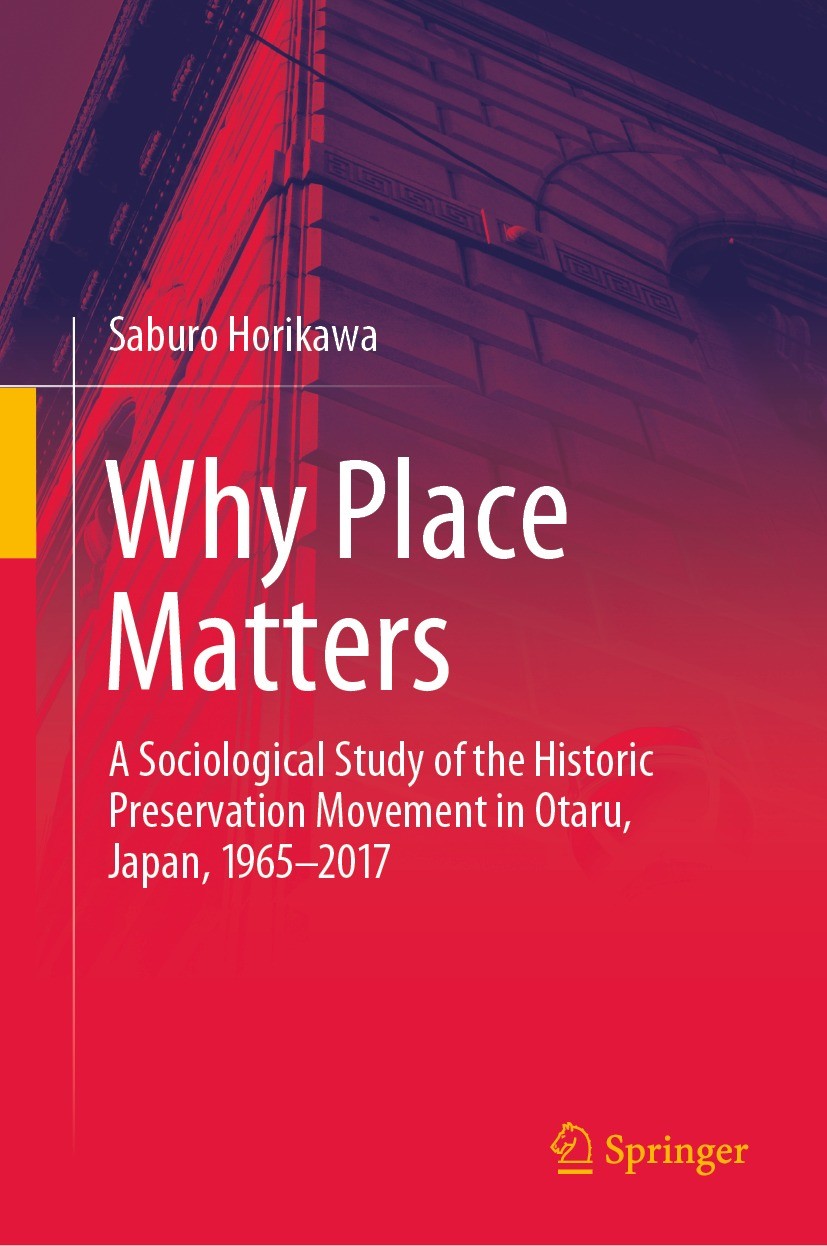| 书目名称 | Why Place Matters | | 副标题 | A Sociological Study | | 编辑 | Saburo Horikawa | | 视频video | http://file.papertrans.cn/1029/1028160/1028160.mp4 | | 概述 | Provides an in-depth account of a preservation movement based on the author’s 33 years of fieldwork.Presents a qualitative analysis of how the preservation philosophy evolved over time.Offers a clear | | 图书封面 |  | | 描述 | .This book is based on the author’s 33 years of intensive fieldwork. It chronicles a major movement that shaped the preservation policy in Japan in the 1980s and 1990s, providing “thick descriptions” of preservationists that are not available anywhere else in English. It also provides clear answers to a series of pressing questions about preservationists: are they building-huggers, are they selfish and myopic home-owners, or are they merely obstacles to urban planning and urban renewal? .Since 1984, Saburo Horikawa, Professor of Sociology at Hosei University in Tokyo, has continuously studied the movement to preserve the Otaru Canal in Otaru, Japan. This book shows that the preservation movement was neither conservative nor an obstacle. Rather, the movement sought to promote changes in which the residents’ “place” would continue to be theirs. As such, the word “preservation” does .not. mean the .prevention. of growth and development, but rather its .control.. As is shown in this study, preservation allows for and can even promote change. .The original Japanese version of this book (published by the University of Tokyo Press) has won 3 major academic awards; most notably, “The Ishik | | 出版日期 | Book 2021 | | 关键词 | qualitative sociology; urban renewal; social control of change; place/space; modern Japanese history; Jap | | 版次 | 1 | | doi | https://doi.org/10.1007/978-3-030-71600-4 | | isbn_softcover | 978-3-030-71602-8 | | isbn_ebook | 978-3-030-71600-4 | | copyright | Springer Nature Switzerland AG 2021 |
The information of publication is updating

|
|
 |Archiver|手机版|小黑屋|
派博传思国际
( 京公网安备110108008328)
GMT+8, 2026-1-22 08:53
|Archiver|手机版|小黑屋|
派博传思国际
( 京公网安备110108008328)
GMT+8, 2026-1-22 08:53


